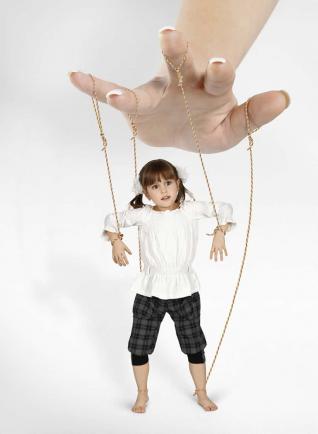
All too often we have heard someone say under their breath, "I wish those parents would control their child." It seems that society would demand of parents to control every action that their child makes, and when a child makes a mistake, it is often the parents that are looked down on. That is when we hear those comments of, "Well, if you would just set more rules..." or receive the looks of "The children over there are behaving well, why can't yours?" It seems that parents are constantly being pushed to control their children.
Alfi Kohn, author of "Unconditional Parenting," explains that the problem with society is not being permissive as a parent, but the fear of permissiveness. No parent starts out thinking, "How controlling can I be today"? No parent wants to dominate his child's life. So how do parents become over controlling? Here are more concerns about over nurturing your children.
Avoid the practice of over nurturing children
One cause of exerting too much control is what parenting experts, Jean Illsley Clarke, Connie Dawson and David Bredehoft, would call an over nurturing parent. Parents want the best for their children, to enjoy their lives and have wonderful experiences. Some parents go too far by wanting their children to never experience hard things. This is where an over-nurturing parent comes in.
Let children learn through doing the "hard things."
Over-nurturing parents exert too much control in their children's lives by doing things for them that they should be doing or learning for themselves. Often these parents view situations from the perspective that things will get done faster if they just do it. This stops children from having experiences that are crucial to their growth. Yes, sometimes these experiences are challenging. But we need to allow our children the opportunity to face opposition and overcome it. So, allow your children the opportunity to grow. Perhaps they are struggling to put a toy together. Don't rush in to do it for them. Let them work at it and give them suggestions that lead them in the right direction. When we let go of a little control of the situation, it may take longer, but we allow our children to have valuable experiences that teach them to persevere and problem-solve.
Allow the child to find the solution
In the above mentioned scenario of putting a toy together, it would be easy for a parent, who has had experience, to jump in and provide the solution. This is how we often are in any of our relationships but especially in parenting. When children are having a meltdown over a seemingly insignificant thing, parents have the tendency to whip out a solution and dismiss the emotions and experiences of their children.
This is another way in which parents exert too much control. Perhaps we just want to help, or maybe we were in the middle of something, so we want to control the duration of how long this episode of emotion may take place.
Whatever the reason, John Gottman author of "Raising an Emotionally Intelligent Child," explains that when parents display this kind of control, we are not allowing our children the opportunity to solve their own problems and regulate their emotions. Yes, it is hard to sit and listen to a child cry about her lost balloon, or a teenage girl going on about her boyfriend that broke up with her. Sometimes we just want to rush through the emotions and get to the solution. Again, this is trying to control the situation too much. Listen to your child and let him experience his emotions. Then help him find a solution instead of giving it to him. This teaches children to problem-solve and learn that they can make it through hard things.
Sometimes we just want our children to obey everything we tell them to do, but Alfie Kohn states, "Research has found that the more a child feels controlled and restricted the more likely he is to act out and resist the things that he should be doing."
We need to respect our children, allow them their choices and opportunities to learn. As we do this, children will behave better and listen to the wise words of their parents.

